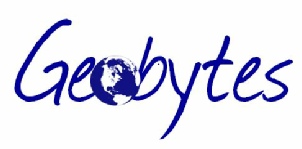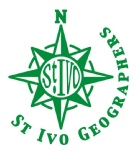


St Ivo Geography Department Online Portal
“Geography is the subject which holds the key to our future” -
Head of Department -


Preparing for A Level Geography
At St Ivo we follow the OCR A Level. You will have three examined units and one NEA (Non-
The three examined units in the OCR A Level Geography are:
- Unit 1 -
Physical Systems - Unit 2 -
Human Interactions - Unit 3 -
Geographical Debates
We have put the following together for you for you to start doing some reading round the topics we will be covering across the two years. For each topic, we have given a brief overview and then some starting points, with examples of reading and video links for you to follow up.
If you want a particular starting point, in the September of Year 12 we start with Glaciation and Changing Places, Making Spaces.
If you have any questions whilst exploring the following please do not hesitate to contact us.
UNIT 1 -
Topic 1 -
In this unit you will explore how earth surface processes, shape glacial landscapes with the aid of transfers of energy and movements of material. The unit explores inter-
Starting points…
- Video: Power of the Planet (Ice) https://www.dailymotion.com/video/x5aj54i -
a GREAT introduction to the work we will be doing on glaciation in year 12. - Reading: All about Glaciers https://nsidc.org/cryosphere/glaciers -
this is a fantastic website for starting to get to grips with glaciation and their impact on the landscapes and provides the foundation for many of the key ideas we will study at A Level.
Topic 2 -
Water and carbon are fundamental to supporting life on earth and are hence regarded as ‘earth’s life support systems. Water and carbon are cycled in both open and closed systems between the land, oceans and the atmosphere. The processes in the water and carbon cycles are inter-
Starting points…
- Reading: Water and Carbon Cycling (Royal Geographical Society) – this is an excellent starting point / content overview for the water and carbon work that we will be looking at https://www.rgs.org/CMSPages/GetFile.aspx?nodeguid=6dc9f1c1-
f92d- 4c04- 9f85- 9985844a6a79&lang=en- GB - Reading: Introduction to the Carbon Cycle https://www.khanacademy.org/science/biology/ecology/biogeochemical-
cycles/a/the- carbon- cycle - Reading: Introduction to the Water Cycle https://www.khanacademy.org/science/biology/ecology/biogeochemical-
cycles/a/the- water- cycle
UNIT 2 – HUMAN INTERACTIONS
At St Ivo, we follow the OCR A Level specification and we cover the following topics for Unit 2.
Changing Places, Making Spaces
This unit explores the relationships and connections between people, the economy and society and their contributing to placemaking (i.e. creating places). The unit explores the meanings and representations attached to places and how place making takes place at a variety of scales. It explores places from a local to global level.
Starting points…
- Interactive: Changing Spaces, Making Places – a good story map introduction – work your way through https://focusschoolwilto.maps.arcgis.com/apps/Cascade/index.html?appid=f10c512164d0498d8f3bcfad8ae61d39
- Reading: Changing Spaces-
Making Places – a good starting point read https://pmt.physicsandmathstutor.com/download/Geography/A-level/Notes/OCR/Changing- Spaces- Making- Places/Set- A/Notes%20on%20Changing%20Places,%20Making%20Places%20- %20OCR%20Geography%20A- level.pdf
Global Connections
The focus of the global connection’s topics is exploring global processes and flows and their impact on people places and institutions. This will help you start to understand how the world around you is shaped, its complexities and the issues that arise. It is broken up into (i) Global Systems and (ii) Global Governance. We will cover one of the optional topics under each heading.
Global Systems: Global Migration (Option B)
At St Ivo we follow the Global Migration option for the Global Systems part of the Global Connections Topic. You will explore contemporary patterns of migration and understand why it has become increasingly complex. You will also be exploring the issues associated with unequal flows of global migration.
Starting points…
- Reading: Introduction to Migration short notes) https://www.tutor2u.net/geography/reference/introduction-
to- migration - Reading: Global Migration – a good starting point read https://pmt.physicsandmathstutor.com/download/Geography/A-
level/Notes/OCR/Global- Migration/Set- A/Notes%20on%20Global%20Migration%20- %20Geography%20A- level.pdf - Video: Escape to Europe: The migrant’s story – BBC Newsnight https://www.youtube.com/watch?v=yZqdUBpHmhM
- Video: The truth about immigration in the UK 2014 https://www.youtube.com/watch?v=MHplEJgevqM
- Video: Immigration: Is Britain Getting Full? https://www.channel4.com/programmes/jon-
snow- explains/on- demand/61877- 004 - Video: Between Borders – America’s migrant crisis https://www.youtube.com/watch?v=rxF0t-
SMEXA - Video: Fleeing Climate Change – The real environmental disaster (forced migration due to climate change) https://www.youtube.com/watch?v=cl4Uv9_7KJE
Global Governance: Human Rights (Option C)
At St Ivo, we follow the Human Rights option (C) for the Global Governance part of the Global Connections Topic. You will explore what is meant by human rights and how women’s rights vary through exploration of the complexity of gender inequality. The course will also explore the global governance of human rights and the extent to which intervention in human rights is contributing to development.
Starting points…
- Reading: Human Rights -
a good starting point read https://pmt.physicsandmathstutor.com/download/Geography/A-level/Notes/OCR/Human- Rights/Set- A/Notes%20on%20Human%20Rights%20- %20OCR%20Geography%20A- level.pdf - Video: World’s worst place to be a woman? (Stacey Dooley Investigates) https://www.bbc.co.uk/iplayer/episode/b06mvwhb/stacey-
dooley- investigates- worlds- worst- place- to- be- a- woman - Video: Why climate change is a threat to Human Rights (TED Talk) https://www.ted.com/talks/mary_robinson_why_climate_change_is_a_threat_to_human_rights
- Video: What if a single human right could change the world? (TED TALK) https://www.ted.com/talks/kristen_wenz_what_if_a_single_human_right_could_change_the_world
UNIT 3 – GEOGRAPHICAL DEBATES
The third unit of the A Level explores some of the most pertinent and dynamic issues that our planet faces. The focus is to give you an opportunity to explore in detail two topic areas in which you gain an understanding of the interactions between people and the environment. There are a number of key concepts which underpin the topics, including inequality, mitigation and adaptation, sustainability, risk, resilience and threshold. By exploring the literature and scientific understanding you will gain your own ideas and opinions to enable you to develop your own arguments with regards to the key issues in these topic areas
Topic 3.1 – Climate Change
“Climate Change is considered by many to be the planet’s greatest threat” (OCR). This is one of the topics we study at St Ivo for Unit 3 – Geographical Debates. We will explore the earth’s variations in climate from the geographical past through to the present day. We will also look at the ways in which natural and human factors have influenced these changes. We will consider and explore the debates that exist around the issue as well as looking at examples of how the impacts of climate change are already being felt. We will also consider a range of potential mitigation and adaptation strategies as we face the uncertainty of the earth’s ability to cope and explore whether an international response to the issue can ever work.
Starting points…
- Video: Climate Change the Facts – David Attenborough https://www.bbc.co.uk/iplayer/episode/m00049b1/climate-
change- the- facts - Video: Panorama – Climate Change: What can we do? https://www.bbc.co.uk/iplayer/episode/m0009drg/panorama-
climate- change- what- can- we- do - Video: The Disarming case to act right now climate change – Greta Thunberg (TED TALK) https://www.ted.com/talks/greta_thunberg_the_disarming_case_to_act_right_now_on_climate_change
- Reading: Climate Change – The Guardian have an excellent section on Climate Change which is frequently updated with articles and is well worth dipping into https://www.theguardian.com/environment/climate-
change - Reading: Climate Change – The Conversation – a wealth of articles – frequently updated – highly recommended! https://theconversation.com/uk/topics/climate-
change- 27
Topic 3.5 Hazardous Earth
At St Ivo, we follow the Hazardous Earth option as part of Unit 3. We explore how our understanding has evolved with regards to the seismic and volcanic activity that we experience through the movement of the earth’s tectonic plates. We look at how these tectonic processes have shaped our world and created new landforms, helping to support life on earth. We also explore the potential impact of the hazards associated with earthquakes and volcanoes and how as technology has developed we have improved our ability to predict and mitigate, whilst considering reasons for the variation in risks associated with hazards both spatially and over time. We will be looking at the concepts of risk and resilience and how these can be managed at various levels and to various degrees of success.
Starting points…
- Video: Power of the Planet (Volcanoes) https://www.dailymotion.com/video/x5af4kg -
a great introduction to the work we will be doing on volcanoes. - Reading: Plate Tectonics (The Geological Society) – this will be a good step up from your GCSE work to A Level and is definitely worth reading / working through https://www.geolsoc.org.uk/Plate-
Tectonics - USGS Natural Hazards – FAQ https://www.usgs.gov/faq/natural-
hazards – some excellent reading here in bitesize chunks – well worth exploring
















